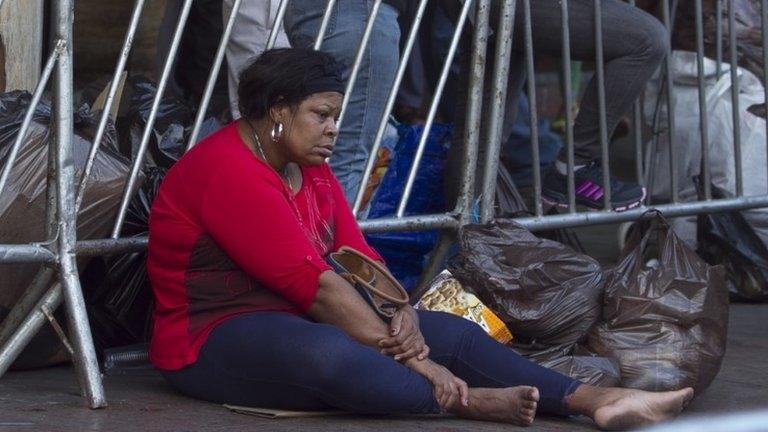Venezuela to close Colombia border each night
- Published
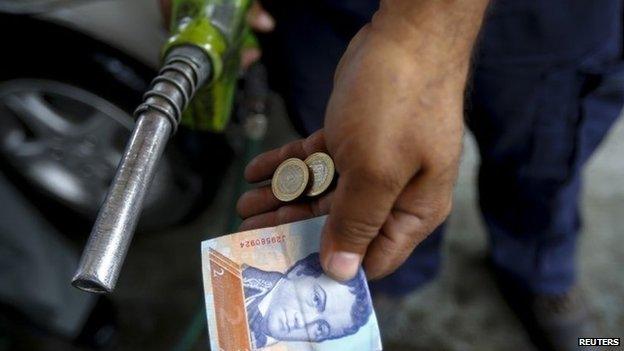
Venezuela, where you can fill your car's tank for less than $1 (£0.60), has the world's lowest fuel prices
Venezuela says it will close its border with Colombia at night from Monday, to try to stop large-scale smuggling of petrol and food.
The government says that tonnes of goods - produced in Venezuela and heavily subsidised - are sold in Colombia at much higher prices.
The shortage of many staples in Venezuela's western border area this year led to anti-government protests.
The border closure was agreed with the Colombian government.
President Nicolas Maduro discussed the measures with his Colombian counterpart, Juan Manuel Santos, at a summit on 1 August.
The 2,200km-long (1,360 miles) border will be closed between 22:00 local time and 05:00 every night.
Cargo vehicles, including vans and lorries, will be banned from crossing from Venezuela to Colombia between 18:00 and 05:00.
'Failed policies'
The cross-border smuggling is also a problem for Colombia, with a big loss in taxes and complaints of unfair competition by local businessmen.
The profits are often used to finance drug gangs and left-wing guerrillas, says the BBC's Arturo Wallace in Bogota.
More than 40 million litres of petrol and 21,000 tonnes of food have been seized so far this year.
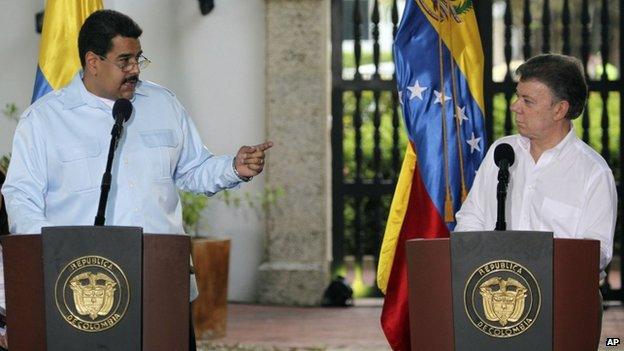
Mr Maduro (left) and Mr Santos (right) agreed on the measures at a summit in Colombia
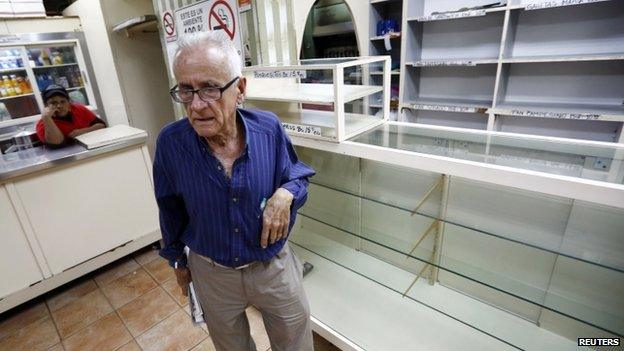
Shortages of basic staples such as bread have angered shoppers across Venezuela
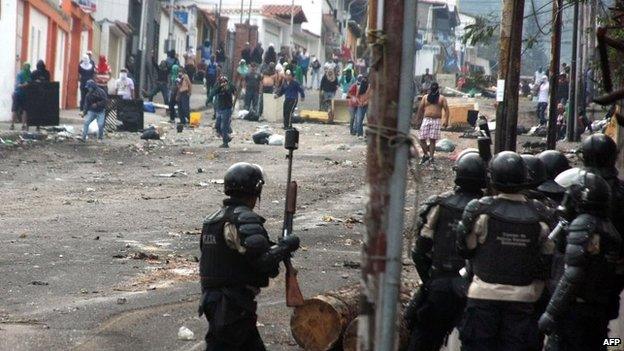
In the border city of San Cristobal, protesters and police clashed on a daily basis earlier this year
"They were ready to be smuggled across the border," said the head of the Venezuelan Armed Forces Strategic Operational Command, Vladimir Padrino Lopez.
"That amount of food is enough to feed 700,000 people for a month," he added.
Mr Maduro's left-wing government subsidises petrol and many food staples, such as milk, rice and pasta, which are sold at controlled prices.
But it says that up to 40% of the goods produced in Venezuela end up on the other side of the border.
Dissatisfaction with the shortage of many staples, as well as rampant crime and high inflation, led thousands of people in the western Venezuelan states of Tachira and Merida to take to the streets in January.
The protests quickly spread to the rest of Venezuela, which faced similar problems.
The opposition blames failed left-wing policies of the past 15 years - initiated with the late president, Hugo Chavez - for the country's economic crisis.
- Published31 March 2014
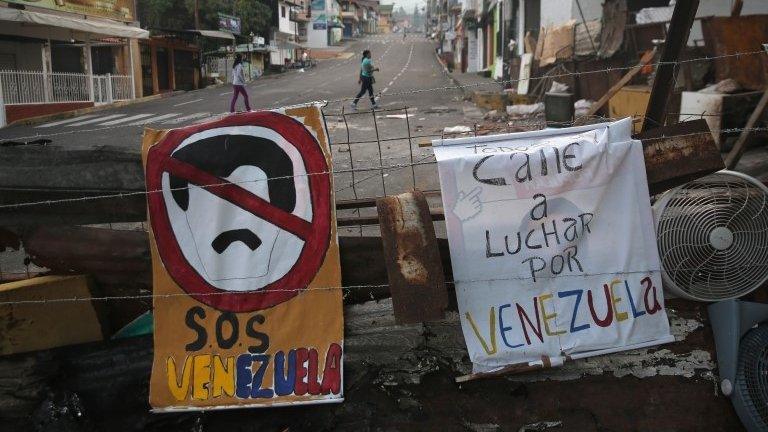
- Published7 March 2014
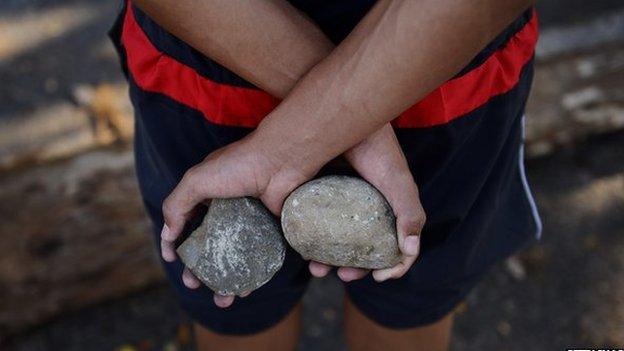
- Published16 January 2014
